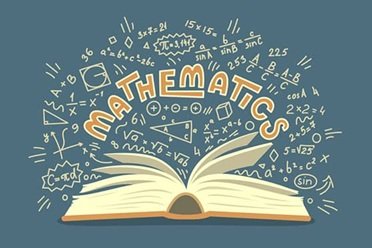Most people think of math as something tied to textbooks, exams, and formulas. But step outside the classroom, and you’ll notice something interesting: Indians use clever math tricks every single day without even thinking about it. From street markets to mobile recharges, and from kitchen measurements to travel planning, practical mental math is woven into daily life.
These small habits make tasks faster, smarter, and more efficient — especially when quick decisions matter. Here’s a light, engaging look at the math skills Indians use instinctively.
Quick price estimations at markets
Buying vegetables or fruits often feels like a small exercise in arithmetic. Even without calculators, people instantly calculate:
- If tomatoes are ₹28 per kilo, 2 kilos = about ₹56
- If a vendor gives a ₹2 discount per kg, total changes instantly
- When mixing items, shoppers keep a running tally in their heads
No written notes — just fast estimation learned through everyday practice.
Rounding off for faster decisions
Indians often round numbers to simplify mental math.
Examples:
- A ₹599 product is mentally treated as “about ₹600”
- Travel distance of 7.8 km becomes “around 8 km”
- A bill of ₹1,480 is expected to be “close to ₹1,500”
This helps make quick comparisons, spot good deals, and judge value instantly.
Calculating offers and discounts on the spot
With constant sales on online shopping platforms, discount math has become second nature.
Common tricks include:
- 10% off → remove one zero
- 20% off → divide by 5
- 50% off → half the price
- Buy 1 Get 1 → split total cost between items
- Flat ₹100 off → subtract mentally before checkout
These calculations happen in seconds, helping shoppers figure out real savings.
Mental math during travel and commuting
Travel planning invites a lot of quick calculations:
- estimating auto fares
- checking fuel efficiency on road trips
- dividing total kilometers by average speed to guess arrival time
- working out shared cab contributions
People mentally compare routes based on distance and traffic patterns, often more accurately than apps.
Kitchen math: one of the most underrated skills
Every household cook uses math without thinking:
- doubling or halving recipes
- measuring “one cup,” “half spoon,” or “a little extra”
- adjusting spices for more people
- splitting dough into equal portions
These actions keep meals consistent even when cooking for varied group sizes.
Salary, savings, and monthly planning
Budgeting involves frequent micro-calculations:
- dividing salary into savings, bills, food, and personal expenses
- estimating EMI burdens
- planning festival-season spending
- calculating long-term savings growth
- checking if an offer actually fits the monthly budget
Even simple habits — like rounding off fuel costs or splitting weekend expenses — involve quiet but constant arithmetic.
The math behind mobile plans
Choosing mobile data plans is another common “math moment.” People compare:
- GB per day
- total validity
- cost per GB
- recharge cycles
- combined offers like OTT + data
Users quickly judge whether a plan is genuinely worth its price. This kind of quick comparison is pure everyday math at work.
Small gambling-style math games people play casually
Across tea stalls, office breaks, and long commutes, people often engage in friendly guessing games that rely on patterns and numbers:
- predicting the next cricket over’s runs
- guessing lottery-style results for fun
- estimating patterns based on previous digits
- trying to spot numerical trends
These are not deep mathematical models — just playful logic mixed with observation. While browsing online, users keep different types of sites in their bookmarks — sports pages, number–pattern sites, analysis tools, and general-use links such as TopX depending on their personal habits. It’s all part of the same everyday-number ecosystem.
Splitting bills in groups
Friends eating out together often settle bills mentally:
- dividing totals evenly
- adding tips
- adjusting for someone who ordered extra
- calculating who owes whom
These quick math exchanges keep group outings smooth.
Kids and their natural number sense
Children pick up patterns early:
- counting steps
- spotting repeating numbers on license plates
- comparing prices of snacks
- guessing scores during cricket play
- dividing chocolates among friends
This intuitive number sense becomes stronger with every game and daily activity.
The math of time management
Daily routines rely on constant micro-calculations:
- how long a commute takes
- when to leave home to avoid traffic
- estimating cooking time before guests arrive
- planning breaks between study sessions
- calculating ideal sleep duration
People rarely think of these as “math,” but they absolutely are.
Why everyday math matters
The math people use daily builds:
- sharper decision-making
- better budgeting habits
- faster problem-solving
- improved planning
- confidence with numbers
- practical life skills
It’s a kind of “street-smart arithmetic” developed through real-world experience rather than textbooks.
Final thoughts
Math is not limited to equations and exams. It’s alive in markets, homes, travel, purchases, savings, and everyday decisions. Indians practice more mental math than they realise — often with impressive speed and accuracy. These daily number habits make life easier, smarter, and far more efficient than we give them credit for.



